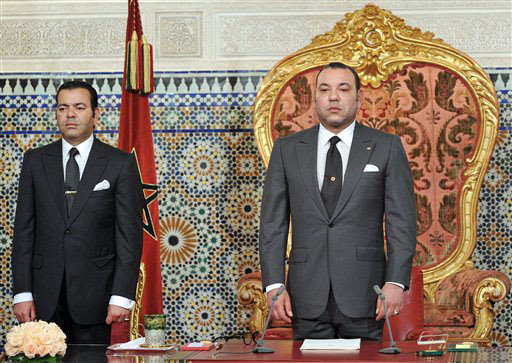Monarchies and Political Unrest in the MENA
November 2, 2023

https://www.cbsnews.com/news/king-declares-morocco-a-constitutional-monarchy/
Authoritarian leaders are likely never in a position to rest easy. The complex requirements of maintaining trust and bribing elites, combined with the need for suppression and acquiescence, means that maintaining authoritarian rule is a difficult task. Since the Arab Spring and the last decade, social and technological factors have given monarchical authoritarian leaders even more reason to worry.
In my view, the most critical factors that have challenged or continue to challenge authoritarian rule are broad regime civil or social traits that translate to challenges and create political unrest, such as the Arab Spring. The main challenges I see facing authoritarian monarchies in the MENA are 1) problems associated with a surplus of educated, unemployed youth and 2) issues within regimes, such as discontent or conflict within royal families that threatens legitimacy.
Using these challenges and examples from MENA monarchies, I will demonstrate the ways such factors threaten regimes as well as the ways monarchies defend themselves. Consider Morocco during the Arab Spring. The protestors were like those in many other MENA countries: young, unemployed persons who were well educated (Khatib and Lust 2014, 324). Young people are given high expectations for job markets and find no work available, leading to unrest. Unlike previous uprisings, the mobilizations during the Arab Spring, not just in Morocco, social media, and the internet allowed movements to reach further. In addition, it is that the protests occurring in other MENA nations displayed on the news inspired protestors, as was discussed in class. The added factor of technology and rapid connection might make authoritarian leaders nervous about their ability to control populations.
However, the protests in Morocco were unsuccessful for numerous reasons. One reason is that the structure of the Moroccan government itself has a long-standing monarchical history. Therefore, there is an added element of legitimacy that might have discouraged populations from desiring to oust the monarch. Instead, they sought government reforms (Khatib and Lust 2014, 224). A country such as Morocco might not have the economic resources to buy off citizens, so given that citizens did not desire a new regime type, the government could appease them with the promise of change or a few minimal changes that took so long to occur that political action had decreased (Khatib and Lust 2014, 228).
Therefore, monarchies may be well suited in some regards to counter protester hostility. Appeals to legitimacy through real or perceived claims of tradition and religion allow leaders to create a certain reverence around themselves. Non-monarchical authoritarian regimes may not have such success in cultivating perceptions of legimitacy.
Consider Bahrain, which faced some of the most political unrest during the Arab Spring. The Al Khalifa ruling family was new compared to other dynasties, and social splits and inconsistencies in Royal power weakened political strength (Khatib and Lust 2014, 173). Consider first the Royal family, internal factions, and bribery that can weaken family power and create public dissatisfaction. For example, many of Crown Prince Salman’s economic reforms financially injured his uncle, who happened to be the prime minister. In addition, Prince Salman used bribery in order to further his economic goals. These reforms led to a split that politically weakened the family and regime (Khatib and Lust 2014, 180-181). Therefore, families are not always ideal for political uniformity, weakening their stance. In the end, Bahraini authorities called on outside security forces in order to suppress the protestors during the Arab Spring, utilizing regional and political connections from exterior states.
Therefore, there are many ways in which monarchical regimes can specifically defend themselves against popular movements that might harm them. Such ways include appealing to legitimacy to protect a real or perceived cultural role, limited or promised political reform, and physical repression, atleast in rentier states like Bahrain. The tools of legitimacy perhaps works both for and against MENA monarchs as many of them were established recently, meaning their claims to power are not embedded in tradition in the ways that Morocco’s might be. So too, many regional monarchs are active in some, but not all political affairs, insulating them from public dissent with political systems. Monarchs can blame other actors for government downfalls(Lucas 2004, 108). In addition, it would seem that regimes can also prevent unrest by limiting repression physically and politically as the Moroccan monarchy did and faced less backlash in 2011 as a result (Khatib and Lust 2014, 228). However, even authoritarian monarchs with extensive repressive capabilities and real legitimacy don’t rest easy, given the success of some countries in ousting monarchies and the changing realm of political participation.
Khatib, Lina, and Ellen Lust. 2014. Taking to the Streets: The Transformation of Arab Activism. Baltimore, MD: The Johns Hopkins University Press.
Russell, Lucas. 2004. “Monarchical Authoritarianism: Survival And Political Liberalization In A Middle Eastern Regime Type” International Journal of Middle East Studies 36, 1: 103-119